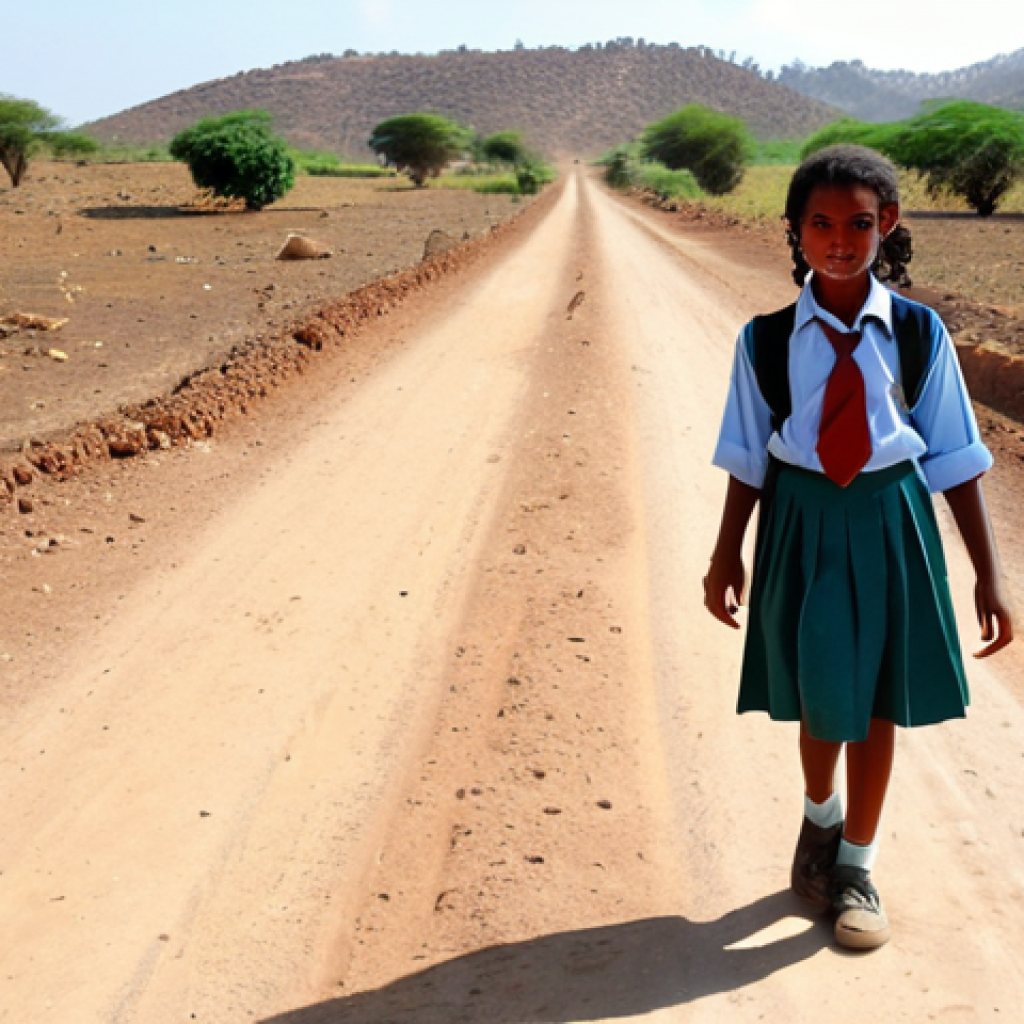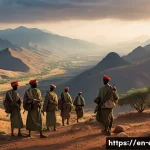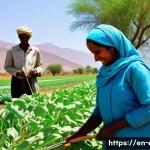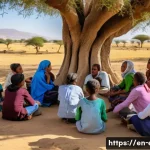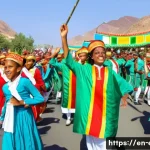Eritrea, a nation with a vibrant history and culture, presents a complex reality for its women. While the Eritrean government has made strides in promoting gender equality through legislation, the lived experiences of women often paint a different picture.
Deep-rooted patriarchal norms, coupled with socio-economic challenges, continue to limit their access to education, healthcare, and economic opportunities.
From what I’ve observed researching this topic, the struggle for Eritrean women’s rights is an ongoing battle, a delicate dance between legal frameworks and deeply ingrained societal beliefs.
It’s a story of resilience, determination, and the persistent pursuit of a more equitable future. I’m fascinated by how these challenges play out on a personal level.
Let’s delve deeper and uncover the specifics of this important issue in the article below.
Navigating the Labyrinth: Education and Eritrean Women
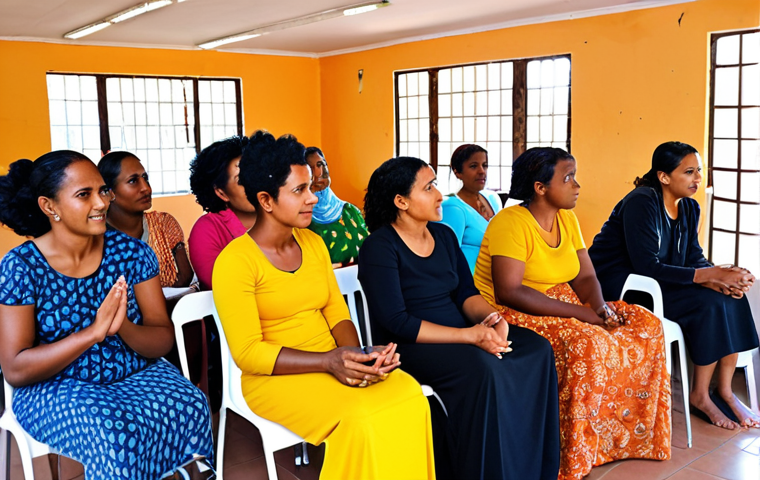
Education is often touted as the great equalizer, but for Eritrean women, the path to knowledge is fraught with obstacles. I’ve come to understand that while the government has technically made primary education free and compulsory, the reality on the ground tells a different story. Imagine families in rural areas, struggling to make ends meet. Sending a girl to school often means losing a valuable pair of hands for household chores or agricultural work. It’s a heartbreaking choice between immediate survival and long-term potential. I learned about a woman named Saba during my research. She was bright and eager to learn, but her family pulled her out of school at 12 to help with the family farm. These kinds of stories are far too common.
Limited Access and Cultural Barriers
Access to education is further complicated by geographical disparities. Rural areas often lack adequate infrastructure, including schools and qualified teachers. Even when schools are available, cultural norms can discourage girls’ education. I’ve seen firsthand how deeply ingrained patriarchal attitudes can influence a family’s decision to prioritize the education of sons over daughters. It’s a frustrating cycle, where traditional beliefs perpetuate inequality and limit women’s opportunities.
The Ripple Effect: Impact on Future Generations
The lack of education has a devastating ripple effect, impacting not only individual women but also future generations. Without education, women are less likely to participate in the formal economy, earn a decent living, or make informed decisions about their health and well-being. It also limits their ability to advocate for their rights and challenge discriminatory practices. From my understanding, it’s a vicious cycle that needs to be broken through sustained efforts and a shift in societal attitudes.
The Double Burden: Work and Family Life
Eritrean women often shoulder a double burden: managing household responsibilities while also contributing to the family income. I observed that in many communities, women are primarily responsible for tasks such as cooking, cleaning, childcare, and fetching water, in addition to working in agriculture or running small businesses. It’s a relentless cycle of labor that leaves little time for rest or personal development. It’s a struggle I can only imagine, balancing the demands of family and work with limited resources and support.
Informal Economy and Economic Vulnerability
Many Eritrean women work in the informal economy, where they face low wages, long hours, and a lack of job security. They often lack access to formal financial services, such as loans or credit, which further limits their economic opportunities. I read reports detailing how women are frequently paid less than men for the same work, highlighting the persistent gender pay gap. It’s disheartening to see how economic vulnerability can trap women in a cycle of poverty and dependence.
The Role of Microfinance and Entrepreneurship
Microfinance initiatives and entrepreneurship programs can play a crucial role in empowering Eritrean women economically. By providing access to small loans and business training, these programs can help women start their own businesses, increase their income, and gain financial independence. However, I think it’s important to ensure that these programs are tailored to the specific needs and challenges of Eritrean women, taking into account cultural norms and local market conditions. One such program I researched showed promising results. It offered business mentorship specifically designed for women, leading to a significant increase in the success rate of their ventures.
Healthcare Hurdles: Access and Cultural Sensitivities
Access to quality healthcare is a fundamental right, but for Eritrean women, it’s often a luxury. I realized that many women in rural areas face significant barriers to accessing healthcare services, including long distances to clinics, lack of transportation, and inadequate medical facilities. Cultural sensitivities and traditional beliefs can also influence women’s healthcare decisions, leading to delays in seeking medical attention or a preference for traditional healers. This is compounded by a shortage of female healthcare providers, making it difficult for women to discuss sensitive issues related to reproductive health.
Maternal Health and Infant Mortality
Maternal health remains a significant concern in Eritrea, with high rates of maternal mortality and infant mortality. Factors contributing to these rates include limited access to antenatal care, skilled birth attendants, and emergency obstetric services. I discovered that cultural practices such as female genital mutilation (FGM) also pose serious health risks to women and girls. It’s a complex issue that requires a multi-faceted approach, addressing both access to healthcare and harmful traditional practices.
Addressing HIV/AIDS and Reproductive Health
HIV/AIDS and other sexually transmitted infections (STIs) continue to pose a threat to Eritrean women’s health. I learned that lack of education about safe sex practices and limited access to condoms contribute to the spread of these infections. Comprehensive reproductive health services, including family planning, are essential for empowering women to make informed decisions about their bodies and their families. It’s crucial to address these issues in a culturally sensitive manner, promoting open dialogue and dispelling myths and misconceptions.
Legal Frameworks and Reality Gaps
The Eritrean government has enacted laws and policies aimed at promoting gender equality, including provisions for equal rights in education, employment, and political participation. However, the implementation of these laws often falls short, and discriminatory practices persist in both the public and private spheres. I’ve noticed that the gap between legal frameworks and lived realities is a significant challenge in the fight for Eritrean women’s rights. It’s not enough to have laws on the books; they need to be enforced effectively, and societal attitudes need to change.
Challenges in Law Enforcement and Judicial Bias
One of the main challenges is the lack of resources and capacity for law enforcement agencies to investigate and prosecute cases of gender-based violence and discrimination. Judicial bias and corruption can also undermine the legal process, making it difficult for women to obtain justice. From what I understand, it’s essential to strengthen the legal system and ensure that it is fair, impartial, and accessible to all women.
Customary Law and Gender Inequality
Customary laws, which often discriminate against women, continue to be applied in many communities. These laws can govern issues such as marriage, divorce, inheritance, and land ownership, often denying women equal rights and opportunities. I think it’s important to reconcile customary laws with national laws and international human rights standards, ensuring that women are protected from discrimination and abuse. I’ve been researching successful models from other African countries where traditional practices have been reformed to align with gender equality principles.
Voice and Agency: Political and Social Participation
Eritrean women’s participation in political and social life is crucial for advancing their rights and shaping the future of their country. I observed that while women have made some gains in political representation, they remain underrepresented in decision-making positions at all levels. It’s essential to create an environment that encourages and supports women’s leadership and participation in political processes.
Barriers to Political Participation
Several factors hinder women’s political participation in Eritrea, including lack of access to education and training, cultural barriers, and limited resources. Women often face discrimination and harassment when they enter the political arena, making it difficult for them to compete with men. I’ve read reports of women being discouraged from running for office or facing intimidation tactics from male opponents. It’s a tough environment to navigate, requiring immense courage and resilience.
The Power of Advocacy and Civil Society
Civil society organizations and women’s rights groups play a vital role in advocating for women’s rights and promoting gender equality in Eritrea. These organizations work to raise awareness about issues affecting women, provide legal assistance and support to victims of violence, and advocate for policy changes. I think it’s important to support and empower these organizations, enabling them to continue their important work.
Violence Against Women: A Shadow Pandemic
Violence against women remains a pervasive and deeply entrenched problem in Eritrea. I discovered that domestic violence, sexual assault, and other forms of gender-based violence are widespread, often perpetrated with impunity. It’s a shadow pandemic that affects women of all ages and backgrounds, causing physical, psychological, and emotional harm. I think it’s essential to break the silence surrounding violence against women and provide support to survivors.
Cultural Norms and Impunity
Cultural norms and attitudes that condone violence against women contribute to the problem. In many communities, domestic violence is seen as a private matter, and victims are often discouraged from reporting it to the authorities. I’ve seen firsthand how impunity for perpetrators of violence perpetuates a culture of fear and silence. It’s crucial to challenge these harmful norms and hold perpetrators accountable for their actions.
Support Services and Legal Protection
Providing comprehensive support services to survivors of violence is essential. This includes access to medical care, counseling, legal assistance, and safe shelters. I’ve learned that strengthening legal protection for women is also crucial, ensuring that laws against gender-based violence are enforced effectively and that victims have access to justice. It’s a complex issue requiring a coordinated response from government, civil society, and communities.
Changing the Narrative: Empowering the Next Generation
Ultimately, the fight for Eritrean women’s rights requires a fundamental shift in societal attitudes and a commitment to empowering the next generation. I realized that education, awareness-raising, and advocacy are crucial tools for challenging discriminatory norms and promoting gender equality. It’s about creating a society where women are valued, respected, and given the opportunity to reach their full potential.
Investing in Girls’ Education and Leadership
Investing in girls’ education and leadership development is essential for empowering the next generation of Eritrean women. By providing girls with access to quality education and opportunities to develop their leadership skills, we can equip them to become agents of change in their communities. I think it’s important to create mentorship programs and role models for young women, inspiring them to pursue their dreams and challenge traditional gender roles.
Promoting Gender Equality in the Media and Culture
The media and cultural institutions can play a powerful role in promoting gender equality and challenging harmful stereotypes. By portraying women in diverse and positive roles, we can help to change perceptions and attitudes about women’s capabilities and contributions. I’ve been researching media campaigns that have successfully challenged gender stereotypes in other African countries, and I believe similar initiatives could be effective in Eritrea.
| Area | Challenges | Opportunities |
|---|---|---|
| Education | Limited access, cultural barriers, lack of resources | Increased investment in girls’ education, scholarships, awareness campaigns |
| Economic Empowerment | Informal economy, low wages, lack of financial services | Microfinance initiatives, entrepreneurship programs, skills training |
| Healthcare | Limited access, cultural sensitivities, high maternal mortality | Improved healthcare infrastructure, maternal health programs, reproductive health services |
| Legal Rights | Gap between legal frameworks and reality, customary law | Law enforcement, judicial reform, reconciliation of customary and national laws |
| Political Participation | Underrepresentation, cultural barriers, discrimination | Political empowerment programs, leadership training, advocacy |
| Violence Against Women | Pervasive violence, cultural norms, impunity | Support services, legal protection, awareness campaigns |
In Conclusion
As we’ve journeyed through the multifaceted challenges faced by Eritrean women, it’s become clear that their struggle is not just a women’s issue, but a societal one. Progress demands a holistic approach, intertwining education, economic empowerment, healthcare accessibility, and legal reforms. By championing their cause, we unlock a future where Eritrean women not only survive but thrive, contributing their invaluable strengths to a more equitable and prosperous Eritrea.
Useful Information to Know
1. Understanding Microfinance: Discover how microloans can empower women entrepreneurs in developing countries. Check out organizations like Kiva (kiva.org) to learn more and potentially contribute.
2. Maternal Health Resources: Learn about global initiatives to improve maternal health and reduce mortality rates. Organizations like the World Health Organization (WHO) offer comprehensive information and resources.
3. Combating Gender-Based Violence: Find resources and support networks for victims of gender-based violence. The United Nations Entity for Gender Equality and the Empowerment of Women (UN Women) provides global perspectives and support initiatives.
4. Promoting Girls’ Education: Explore organizations dedicated to promoting girls’ education in developing countries. The Malala Fund (malala.org) is a well-known advocate for girls’ education worldwide.
5. International Human Rights Standards: Familiarize yourself with international human rights conventions related to women’s rights. The Convention on the Elimination of All Forms of Discrimination Against Women (CEDAW) is a key document.
Key Takeaways
Eritrean women face significant challenges in education, economic empowerment, healthcare, and legal rights.
Cultural norms and traditional practices often perpetuate gender inequality and violence against women.
Empowering women requires a multi-faceted approach, including education, economic opportunities, access to healthcare, and legal protection.
Civil society organizations and women’s rights groups play a crucial role in advocating for change.
Investing in girls’ education and leadership development is essential for empowering the next generation.
Frequently Asked Questions (FAQ) 📖
Q: What are some of the specific challenges Eritrean women face in accessing education?
A: Well, from what I’ve gathered, even though the Eritrean government has officially made education a priority, many girls and women are held back by traditional roles and expectations.
Families sometimes prioritize boys’ education over girls’, especially when resources are limited. Early marriage is also a big problem, forcing many young girls to drop out of school.
Plus, the lack of safe and accessible transportation to schools, particularly in rural areas, makes it incredibly difficult for girls to continue their studies.
It’s a real uphill battle for them.
Q: How does Eritrea’s political climate impact the rights and freedoms of women?
A: That’s a tough one. Eritrea has been under the same ruling party for decades, and there’s a limited space for independent civil society organizations and freedom of expression.
This makes it hard for women’s rights groups to advocate effectively for change. It can be really risky to speak out or organize, and that chilling effect definitely hinders progress on gender equality.
Imagine trying to push for reforms when you’re constantly looking over your shoulder – it’s not easy, is it?
Q: Beyond legal reforms, what other factors are essential for improving the lives of Eritrean women?
A: In my view, it’s about changing hearts and minds, really. Legislation is important, sure, but unless you tackle those deep-seated patriarchal beliefs and societal norms, progress will be slow.
Things like community education programs that challenge gender stereotypes, empowering women economically through micro-loans and job training, and ensuring access to quality healthcare, including reproductive health services, are all crucial.
It’s a holistic approach that’s needed, one that supports women in all aspects of their lives and gives them the agency to make their own choices. It’s not just about passing laws; it’s about creating a society where women truly have equal opportunities.
📚 References
Wikipedia Encyclopedia
구글 검색 결과
구글 검색 결과
구글 검색 결과
구글 검색 결과
구글 검색 결과
